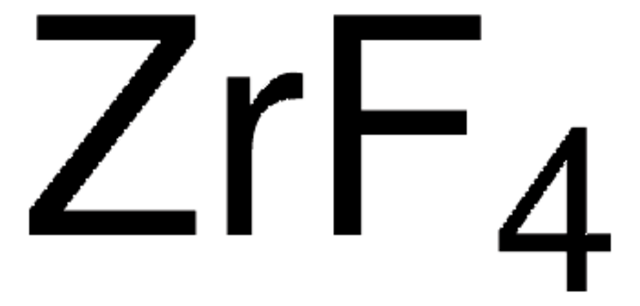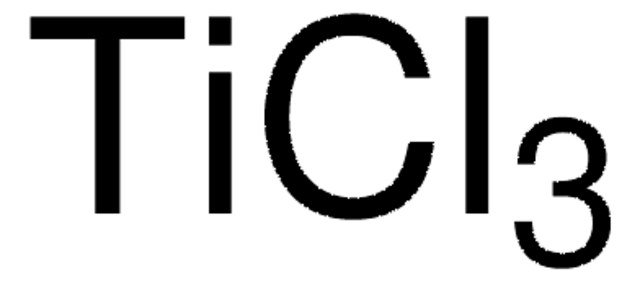333239
Titanium(IV) fluoride
Synonym(s):
Titanium tetrafluoride, Titanium fluoride
About This Item
Recommended Products
form
powder and chunks
reaction suitability
core: titanium
reagent type: catalyst
density
2.798 g/mL at 25 °C (lit.)
SMILES string
F[Ti](F)(F)F
InChI
1S/4FH.Ti/h4*1H;/q;;;;+4/p-4
InChI key
XROWMBWRMNHXMF-UHFFFAOYSA-J
Application
- Chemoselective synthesis and deprotection of geminal diacetates of aldehydes
Signal Word
Danger
Hazard Statements
Precautionary Statements
Hazard Classifications
Acute Tox. 4 Dermal - Acute Tox. 4 Inhalation - Acute Tox. 4 Oral - Eye Dam. 1 - Skin Corr. 1B
Storage Class Code
8A - Combustible corrosive hazardous materials
WGK
WGK 3
Flash Point(F)
Not applicable
Flash Point(C)
Not applicable
Personal Protective Equipment
Certificates of Analysis (COA)
Search for Certificates of Analysis (COA) by entering the products Lot/Batch Number. Lot and Batch Numbers can be found on a product’s label following the words ‘Lot’ or ‘Batch’.
Already Own This Product?
Find documentation for the products that you have recently purchased in the Document Library.
Customers Also Viewed
Articles
Titanium dioxide applications: Semiconducting material characteristics and diverse functionalities.
Titanium dioxide applications: Semiconducting material characteristics and diverse functionalities.
Titanium dioxide applications: Semiconducting material characteristics and diverse functionalities.
Titanium dioxide applications: Semiconducting material characteristics and diverse functionalities.
Our team of scientists has experience in all areas of research including Life Science, Material Science, Chemical Synthesis, Chromatography, Analytical and many others.
Contact Technical Service














